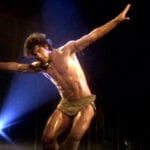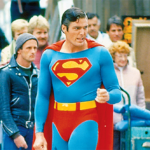 Travel
Travel  Travel
Travel  Movies and TV
Movies and TV 10 Actors Hidden in Your Favorite Movies
 Our World
Our World 10 Science Facts That Will Change How You Look at the World
 Pop Culture
Pop Culture 10 Incredible Female Comic Book Artists
 Crime
Crime 10 Terrifying Serial Killers from Centuries Ago
 Technology
Technology 10 Hilariously Over-Engineered Solutions to Simple Problems
 Miscellaneous
Miscellaneous 10 Ironic News Stories Straight out of an Alanis Morissette Song
 Politics
Politics 10 Lesser-Known Far-Right Groups of the 21st Century
 History
History Ten Revealing Facts about Daily Domestic Life in the Old West
 Weird Stuff
Weird Stuff 10 Everyday Products Surprisingly Made by Inmates
 Travel
Travel 10 Natural Rock Formations That Will Make You Do a Double Take
 Movies and TV
Movies and TV 10 Actors Hidden in Your Favorite Movies
 Our World
Our World 10 Science Facts That Will Change How You Look at the World
Who's Behind Listverse?

Jamie Frater
Head Editor
Jamie founded Listverse due to an insatiable desire to share fascinating, obscure, and bizarre facts. He has been a guest speaker on numerous national radio and television stations and is a five time published author.
More About Us Pop Culture
Pop Culture 10 Incredible Female Comic Book Artists
 Crime
Crime 10 Terrifying Serial Killers from Centuries Ago
 Technology
Technology 10 Hilariously Over-Engineered Solutions to Simple Problems
 Miscellaneous
Miscellaneous 10 Ironic News Stories Straight out of an Alanis Morissette Song
 Politics
Politics 10 Lesser-Known Far-Right Groups of the 21st Century
 History
History Ten Revealing Facts about Daily Domestic Life in the Old West
 Weird Stuff
Weird Stuff 10 Everyday Products Surprisingly Made by Inmates
Top 10 Memorable Spaghetti Scenes
Movies and spaghetti: two of life’s most reliable and satisfying joys. When spaghetti appears in a movie, it can sometimes play an important part in the movie’s plot, style or character depiction, and could have, as this list will demonstrate, a lot more meaning or purpose beyond just food. So let’s count ten great films that contain memorable scenes in which spaghetti plays a major role. These are the top ten movies for spaghetti. Where the specific scene in question is not on youtube, trailers are provided.
Nothing is worse than the disappointing, nostalgic feeling you get when watching an old movie and you have to ask yourself, “Why can’t they make movies like this anymore?” Case in point: A Night at the Opera, by the Marx Brothers. At the center of this comedy masterpiece is a lively musical sequence that includes Allan Jones belting out a hearty vocal solo, Chico Marx performing his signature piano routine, and, of course, the ever poignant Harpo on the harp. And it all starts with a plate of Spaghetti.
As with similar comedy teams from the period (read: The Three Stooges), a running theme with the Marx brothers was that they were always trying to find something to eat. The context in this film is that they are illegal stowaways on a ship from Italy to New York, and they are starving, and when they finally do find food it’s a banquet of spaghetti, served out of a ridiculously large bowl, with meatballs and sauce, all liberally heaped onto their plates with no questions asked. There’s nothing they can do about it except stare with wide eyes at their newfound feasts, and smile. After all, what better way to launch into an epic song-and-dance number than on a full stomach? And with these amiable protagonists, it’s difficult for the audience not to feel stuffed right along with them. Yet, the spaghetti scene is only one of the many reasons A Night at the Opera frequently, and rightfully, earns a spot on shortlists for the highest-rated, most critically acclaimed films of all-time.
In his first foray into the family genre, Will Ferrell plays Buddy, the Elf, a man raised by elves on the North Pole. After learning that he is not really cut out for elf work, Buddy decides to leave his adoptive elf father (Bob Newhart) and reconnect with his biological father (James Caan), who lives in Manhattan, where the storyline proceeds with several zany, fish-out-of-water antics.
In one scene, Buddy makes himself a breakfast consisting of spaghetti topped with what appears to be sprinkles, marshmallows, M&Ms, maple syrup and chocolate fudge pop tarts. He then grabs this concoction and shovels it into his mouth with his bare hands. Besides being hilarious, this is an important scene because it gets to the core of what Buddy really is—not just outrageous, or ignorant, or bizarre, or immature, or stupid, but, in fact, childlike. What scene in this whole movie better portrays this one quality, and what better quality for him to have in a Christmas movie?
It’s a shame, however, that the ending of this emotionally-driven movie was trampled by cheap CGI reindeer. You can view the clip here.
Two words: Spaghetti Tornado.
Two more words, these two meekly uttered by Flint Lockwood, the inventor (Bill Hader), when he first witnesses the terrifying Spaghetti Tornado: “Mama Mia.” Enough said.
In this movie, probably categorized best as a “dark comedy,” Tracy Ullman discovers that her Italian husband (Kevin Kline) has been serially unfaithful. Devastated, her reaction is to secretly plan and carry out his murder. Unfortunately her many attempts at this fail, leaving him blissfully unaware that he is in any danger, and thus providing the action of the movie.
One of her ideas is to poison him by making him a big spaghetti dinner with two whole bottles of sleeping pills mixed into the sauce. She keeps serving him plate after plate, waiting for him to keel over, to no avail, as other silliness ensues. Now, it may be mildly notable that her character isn’t Italian, she’s a Slav, so there may be some vague racist tones in this spaghetti strategy of hers, especially since he and his mother-in-law insist on insulting each other in their native languages, but that’s only if you want to look really deep into it. Given the rampant immorality of all the characters, this movie is actually very funny. At one point Kevin Kline says to one of his girlfriends, “I’m Italian, I can’t make love to a woman with a German Shepard in the room. It’s awkward for him.”
Going much further into the realm of the macabre, fittingly for Listverse, Se7en takes the concept of Murder-by-Spaghetti to whole new level.
The setup is basic enough: Morgan Freeman and Brad Pitt are detectives assigned to a case, Freeman is on the verge of retirement, he doesn’t care for Pitt’s cocky attitude, yada yada yada. Anyway, at the first crime scene they visit, they find a morbidly obese man sitting, dead at a table, with his hands and feet bound together with barbed wire, and his head facedown in a bowl of spaghetti. There’s also a bucket of vomit and human excrement under the table. After visiting with the coroner, they conclude that the man must have been tortured by being force-fed numerous cans of spaghetti, at gunpoint, until his organs eventually burst and he died from internal bleeding.
The story goes that the killer responsible is a maniac who follows a pattern based on the Seven Deadly Sins, with the obese victim representing Gluttony. The rest of the corresponding murders follow (Greed, Lust, etc, all similarly grotesque), but this first one is what sets the tone for the whole movie. It’s twisted, disgusting and disturbing, which is exactly how both detectives feel about the unidentified “metro” setting they both live in, and cannot stand.
In this Japanese language film, a humorous restaurant scene shows an unexpected interplay between two cultures. A Japanese woman is instructing a group of younger girls the polite way to eat spaghetti. She demonstrates the correct way of holding a fork and spoon, how to politely twirl the noodles up off the plate, bite, chew and so forth.
Across the dining area at another table is a western-looking man who is served his own plate of spaghetti. As he eavesdrops on the etiquette lesson, he attempts to eat his spaghetti according to how the Japanese teacher is describing. Before long, however, he grows impatient and simply starts to scoop the spaghetti into his mouth and slurp it loudly. When the Japanese women hear him they are all very shocked and embarrassed, but after a couple of minutes they realize that his way is more effective and they all abandon the proper style in favor of slurping, including the instructor. This awesome scene works great even without subtitles.
The role of Italian food in this movie is to symbolize the extravagant life of the mob members, and it is summed up with a line from the final scene. Ray Liota, a former “wise-guy”, and the film’s narrator, is lamenting his new suburban life in the witness protection program, as he says, “I can’t even get decent food! Right after I got here I ordered some spaghetti with marinara sauce and I got egg noodles and ketchup. I’m an average nobody.”
Contrast this sentiment with a previous scene in which he and the gang are preparing a delicious dinner, while they’re actually serving time in prison, on “Mafia Row.” As mobsters, they were somehow privileged enough to not have to stay in cells like regular criminals, and they got to cook their own meals from scratch. As Pauly Cicero is cutting paper-thin strips of garlic with a razor blade, Liota walks in with fresh baked bread, cheese and two bottles of wine. (This scene only refers to “pasta”, and not spaghetti specifically, but still.)
Another notable scene in which the relationship between food and lifestyle is illustrated is when Ray Liota is in the middle of a major drug deal, and he calls home to make sure his little brother is stirring the tomato sauce he has on the stove, just to make sure the sauce doesn’t “stick.”
Make no mistake, Martin Scorsese earned an Best Director Oscar for this movie, even though they gave it to him for The Departed.
In one nice little scene Jack Lemmon is making dinner for Shirley McLane in the apartment, and as he is singing and dancing in the steamy kitchen, he uses a tennis racket to strain the spaghetti over the sink. As if this act of typical uncivilized bachelorhood wasn’t enough, McLane then says, “You’re pretty good with that racket,” to which Lemmon replies, “wait ‘til you see me serve the meatballs!” Classic.
To fully appreciate the spaghetti scene in this movie, you have to consider it from the point-of-view of its target audience: adolescent boys. Bean Healy (John Ritter) is a single dad who is raising his only son, Junior, and the two of them are out on a double date of sorts with his (Ben’s) single mother girlfriend Annie and her daughter Trixie. At the restaurant Junior and Trixie spot their school principal Igor Peabody (Gilbert Gottfried) sitting at a VIP table with his scantily-clad female companion, and the two kids decide to start some mischief. With a spoon, Junior catapults a meatball across the dining room and into the ample cleavage of Peabody’s date where it is securely buried. As Peabody presumptuously attempts to fish it out with his fingers, Trixie pelts him in the side of the head with another meatball, at which point Peabody screams, “You rotten kids! You should be locked in cages!” At this, Ben retaliates in the kids’ defense and before long the entire restaurant is engulfed in a full-fledged spaghetti food fight (there are also pies).
This is a fundamental turning point in the movie’s plot and character development, as before this scene Junior and Trixie regarded each other principally as a rivals and both were in a power struggle against their parents, but now, as a result of the food fight, when they have teamed up for the first time, the audience can see how truly loyal all four characters are to each other, and how perfect they all are as a family.
It’s difficult to single out another exact moment in all of the vast Disney collection that’s more charming, creative, tender, iconic and downright romantic, than when the cocker spaniel and the schnauzer-mix in Lady and the Tramp serendipitously pull each other into a kiss when they slurp up the same noodle from a plate of spaghetti. It’s their first official date, it’s under a starry sky, there’s music, and they’re both completely oblivious about what’s about to happen until the very last moment when their lips touch! Except for the borderline-hostile ethnic stereotypes in this scene, it is nothing short of flawless.
What’s interesting is that, with such a great moment, it becomes totally irrelevant that the two characters are dogs, instead of people. No small accomplishment, but maybe the fact that they’re non-human in the first place is what makes the whole thing so universally accessible to viewers young and old. This is truly one of the crowning jewels in the Magic Kingdom.
As a side note, this scene was later lampooned by the 1993 movie, Hot Shots Part Duex, even down to Charlie Sheen pushing a meatball across the plate with his nose. By and large a worthless picture, this one parody succeeds in not completely desecrating the original. It actually pays a modest tribute in its own weird way. The Lady and the Tramp scene was also alluded to by the show Married…with Children when Buck takes a female dog to the backdoor of an Italian restaurant (where Al Bundy also goes to beg for food.)



![Top 10 Most Important Nude Scenes In Movie History [Videos] Top 10 Most Important Nude Scenes In Movie History [Videos]](https://listverse.com/wp-content/uploads/2019/09/sharonstone-150x150.jpg)




